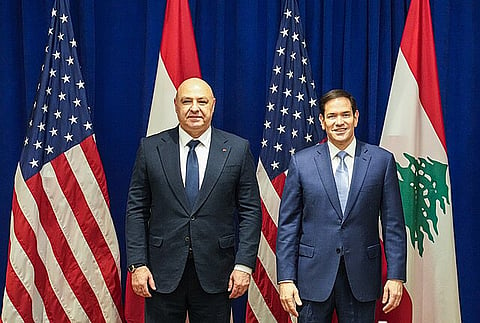

The Trump administration's approval of a $230 million package for Lebanese security forces is being framed as support for national sovereignty, but is widely seen as direct pressure to disarm Hezbollah, a group that retains significant popular support and is viewed by many as a necessary defense force against Israel.
The U.S. aid package, comprising $190 million for the Lebanese Armed Forces (LAF) and $40 million for the Internal Security Forces (ISF), is officially intended to help the state "assert Lebanese sovereignty" and implement UN Resolution 1701. This comes after the Lebanese government was tasked with creating a plan to ensure all weapons are in the hands of state security forces by year's end.
However, from the perspective of Hezbollah and its supporters, this American initiative is not about sovereignty but about imposing a surrender. Hezbollah officials have rejected the plan, with senior leader Naim Qassem stating the group will not accept U.S. "dictates" and questioning why Lebanon should give up its strength while "all the strength cards remain in the hands of the Israeli enemy". The so-called "American paper" was presented by U.S. Special Envoy Tom Barrack, who one Hezbollah parliament member said treated it as a "complete submission from the Lebanese to the American government".
This push for disarmament occurs when Hezbollah is at one of its weakest points. A devastating war with Israel that began a year ago left swathes of Lebanon in ruins, killed thousands of Hezbollah fighters, and eliminated most of the group's senior leadership, including its longtime leader Hassan Nasrallah. The conflict has severely damaged the group's power, creating an uncertain future for the Iran-backed organization.
Despite this weakened state, Hezbollah's identity is inextricably linked to its armed resistance, and it is now struggling to hold onto the weapons that are at the core of its being. The group has, however, taken some steps, surrendering more than 500 weapons stores and military installations in Southern Lebanon in a move to fulfill obligations from a previous U.N. resolution.
For Hezbollah and its constituency, the weapons are not the problem but the solution to what they see as the primary threat: Israel. The group's primary enemy has always been Israel, and its military strength has been built precisely to counter it. Within Lebanon, many question the feasibility and fairness of a plan that would leave the country defenseless.
As voiced by Dr. Mohammad Haider, a Lebanese Minister of Labor, the Lebanese Army in its current state is incapable of defending the nation. "When Israel decides to strike any area in Lebanon, it has no ability to prevent any plane from reaching its target, let alone shoot it down," he stated. He and others argue that there has been an "international decision not to supply the Lebanese Army with weapons," and that the U.S. forbids other countries from arming Lebanon except through American channels. This stands in stark contrast to the $12.5 billion in annual military aid provided to Israel, making the U.S. commitment to Lebanese security seem symbolic at best.
The U.S. plan risks upsetting Lebanon's delicate sectarian balance and could potentially pit the Lebanese army against Hezbollah, turning the conflict into an internal battle that plays into Israel's hands. For Hezbollah's Shia supporters, the American plan is an affront to Lebanon's sovereignty, while its detractors see it as a historic chance to weaken the group's influence over the state.
Faced with intense pressure, Hezbollah has shown a degree of pragmatism. Sources indicate the group would consider turning over some of its weapons, but only on the condition that Israel first withdraws from southern Lebanon and halts its attacks. Iran, a key backer, has also engaged in back-channel diplomacy, urging Saudi Arabia to reduce pressure on Hezbollah and arguing that the region would not benefit from its disarmament.
Ultimately, the U.S. plan is seen by its critics as a one-sided demand for surrender that fails to provide Lebanon with a credible, sovereign defense alternative. The promise of future American aid is viewed with deep skepticism, with questions remaining over whether it will truly provide the Lebanese army with the capability to defend the nation or merely fund symbolic gestures. For many in Lebanon, disarming Hezbollah under current conditions is not a step toward peace, but an invitation for further Israeli aggression.